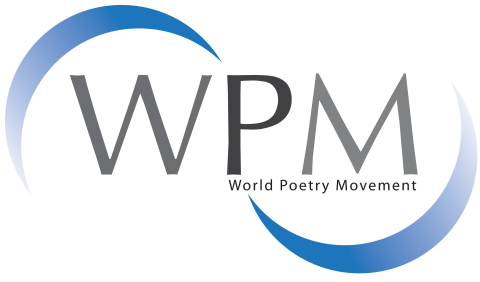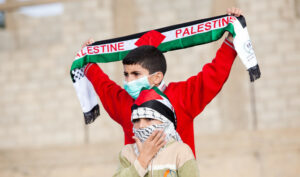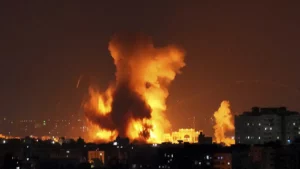December 2022
WORLD CONTEXT
We live in a wonderful and terrible world.
Wonderful, because humanity demonstrates every day that it is capable of miracles. Miracles of science, of technology, of art. But also, miracles of courage of the billions of women, men, children who, by dint of mutual aid, often live or survive in the most difficult conditions.
But this world is also terrible because it shows us that humanity, capable of the best, is also capable of the worst.
The greater our capacity to produce, the greater our capacity for destruction, even self-destruction. The greater our power over nature, the greater must be our sense of its limits and our responsibility.
It is becoming increasingly clear that if we allow capitalist greed and the will to power of the few to be at ease, we will give free rein to endanger the living conditions of the many, and even the living conditions on Earth.
We know that we are threatened by several factors. We know that we are threatened not only by the risk of war, of nuclear holocaust, but also by the risk of climate catastrophe and by the consequences of growing global inequality.
What is endangered is not only nature, but also the culture that makes us fully human. What distinguishes human beings is their capacity for imagination. The ability to dream and to make dreams come true. We do not want a world of apartheid and violence in which we are reduced to being slaves of machines and screens, individuals and peoples deprived of a future.
Everywhere in the world today we see people claiming their right to exist and to question the old balances. Hence the desperate attempts of those who want to maintain their domination at all costs through the power of their money, their weapons and their control of images and information.
In this context, what good is poetry to us? It has neither the power of weapons nor the power of money. But it is essential to our lives.
Poetry has been present from the beginning until today in all peoples, all cultures, all languages, because it is the only way to live.
The shared word is necessary and even indispensable, that form of sensitive consciousness that connects us with ourselves and with others, with our past, our present and our future, and also with nature and the cosmos.
It is the means of inhabiting the world, with our knowledge and our imagination. It is our way of giving life all the names and all the words. It is the way to call the world by its original name and to make this outer world, sometimes strange and hostile, an inner, intimate and friendly world that always welcomes us.
We need poetry to accelerate the emergence of a humanity conscious of itself and of its possible future. A humanity connected with itself and with its common dream. That “planetariat” that our friend Jack Hirschman called for and whose appearance he foresaw.
For us, poetry is not the private property of poets. The revolutionary idea we have of it aims, as he said, to liberate the poet in every human being.
That is why the poets gathered in the World Poetry Movement do not conceive of their art as poets independent of each other, or their art as poets independently from a common work, in order to make poetry as popular as possible, so that it may be shared and realized by all.
TRAJECTORY OF WPM
For these and all the other objective and subjective reasons, which oppress human life and living species on Earth was created, at the initiative of the International Poetry Festival of Medellin, in that Colombian city, in July 2011, the World Poetry Movement (WPM), with the presence and commitment of directors of 37 international poetry festivals on four continents, Among them were Rati Saxena, Alex Pausides, Ataol Behramoglu and Fernando Rendón (current coordinator), founding poets who have given continuity to the Movement, as an instance of the confluence of several thousand poets from all regions of the Earth, to develop different manifestations of unity of action from the language and acts of poetry.
Since then, once a stable Coordinating Committee was formed, WPM has experienced different moments and processes of transformation. Its leadership has established a series of guidelines for the stability and continuity of its tasks, through a process of constant virtual meetings, and face-to-face meetings in Medellin (Colombia), in Zigong and Chengdu (People’s Republic of China), Caracas (Bolivarian Republic of Venezuela), and next May in Istanbul (Türkiye).
WPM works for a worldwide poetic revolution that brings poetry to all peoples, since “poetry must be made by all human beings”, as it is destined to transform their lives. Our Movement has developed several thousands of poetry readings through 21 international poetic actions in more than 150 countries, since its origins, to accompany human society in its struggle for deep peace with social justice, for a world without walls, for the cultural, social and political transformations that are required, and for the irreducible defence of nature, our vital environment, without whose complete recovery we will not be able to survive for long.
WPM’s two most recent international actions were developed under the slogans “poetry is the path to peace” and “in solidarity with the original peoples of the Earth in resistance”. WPM has maintained active since its foundation and under the responsibility of its office in Medellin a web page (www.worldpoetrymovement.org) in which it expands the spirit of poetry and a luminous imagination about the human future, as well as through its social networks on Facebook, Instagram and Twitter, and gradually influences at the same time in mass and alternative media.
At the same time, the CC of WPM has appointed four continental directions and a high number of leaders and national committees (106), with an outstanding participation of women and young poets, in the countries where it has deployed its organizational work.
Currently the Coordinating Committee (CC) of the World Poetry Movement is orienting its work towards the convocation and realization of virtual continental congresses in Africa (January, 2023), Asia (February, 2023), Europe (March, 2023) and America (April, 2023), with the support of the Venezuelan Ministry of Foreign Affairs.
These continental events will be preparatory to the first WPM Congress, to be held in Medellín between July 13 and 15, with a second stage in Caracas between July 17 and 20, both in person and virtually (due to budgetary limitations), during which a Strategic Plan 2023-2028 will be approved. The Congress will be financed by the International Poetry Festival of Medellin, the Ministries of Culture of Colombia and Venezuela, and the Ministry of Communications of Venezuela.
We will be ready in 2023 to discuss and structure a new stage of the World Poetry Movement through a redefinition of our objectives and work plans and an organic renewal of our leadership and our Movement, so that it is able to trigger a deeper action through multiple initiatives of poets in different regions of the world, which gives a more impactful dimension to the relationship of poets and poetry with human society.
Poetry appeared on Earth before the appearance of language, creation of the people, therefore, poetry was not made for chosen spirits. The destiny of poetry, as its primordial source, is the soul of the people. Poetry is a mobilizing force of the spirit and of human society.
WPM must be able to create mechanisms to ensure that poetry, with the help of technology and the most advanced means of communication, reaches young people, children, women, the elderly, all human beings. Only in this way can a profound and decisive change be guaranteed in a dehumanized world, whose drive for self-destruction is being encouraged by the forces of dissolution in history.
WPM’S PROPOSALS
For a long time, there has been a debate about the usefulness or uselessness of poetry, about whether or not it can have an essential influence on the life and destiny of human beings. And although it cannot change society, poetry will always change people’s conscience, feelings, sensibility and perception in the darkest hour of history, nourishing their hope and resistance, when it seems that the triumph of death, announced by military and politicians, philosophers, writers and artists of defeat for centuries, is already imminent.
The peoples of the world already know that they have very few years to press with unstoppable actions the realization of treaties for the prohibition of nuclear weapons and weapons of mass destruction. Everyone knows that time is short before nature does justice and cancels the subscription and the right of human beings to remain on Earth.
That is to say, we are at the limit of the final deadline to take urgent and definitive measures to eliminate the lethal threats to the air, water, forests, fauna and flora. That is, on humans, because we are the Earth.
Everyone knows that we have little time to stop the process of deterioration of human life, subjected to distressing pressures and shortages, and that the only possible way to rebalance human life, the world and the Earth, and to achieve social justice in the world, peace and harmony, is the mobilization of all spiritual and cultural, political and social energies, to stop the power of fascism and militarism, which have put their stamp on the destruction of life and the planet.
We poets have remained for many centuries on the margins of society and we must now intervene through the proliferation of powerful processes of formation and communication, alongside powerful processes of social mobilization, which are emerging as a reaction to the manifestations of the disintegration of life and of belligerence of the insane forces prone to annihilation.
It is love and not death that must win at the top of history. The World Poetry Movement from the realization of its Congress, in the month of July, must initiate its own cycle of restorative actions, and of accompaniment to the vigorous social mobilizations, acting as much in the closed enclosures as in the streets, flooding with poetry, through its activists, the walls, the demonstrators’ banners and placards, taking its voice and all the songs to all the human beings that mobilize for freedom and for the radiant future of life.
The World Poetry Movement will use all possible means of communication to develop a multiplying World Poetry School, a network of WPM National Committees in 200 countries, an instance of dialogue with all human beings, in factories, in offices, in universities, in schools and colleges, in neighborhoods and sidewalks, inside popular organizations, in the intimacy of silence and in the intimacy of the crowd, to ensure that the ancient voice of poetry live on the lips and in the ears of every human soul.
A next migratory movement without shores of poetry, convened and organized by the World Poetry Movement, populated by acts, songs and voices, meetings and publications, face-to-face and virtual poetry readings, public and private events, will emerge from the south of the African continent, country by country, and will spread simultaneously to the center and north of the continent and to the gates and depths of the Asian continent, and it will extend to Oceania and head to the south of Europe, country after country, a growing movement, like a great unknown river of poetry in the rainiest season, will refresh Europe and reach America across the Atlantic and the Bering Strait, a magna, multitudinous and powerful expression of the poets of the world, unified, to call for the inauguration of a new epoch, of a new cycle of humanity. A river of poets, of musicians, of dancers, of visual artists, of filmmakers, of thinkers, of humanists will cross the world geography of disaster, and will rush from North America to Patagonia, country by country, until the world understands the message of the ancient poets, of the contemporary poets and of the future poets, the millenary call of the poetry of the past, of the present and of the future TO LIFE.
COORDINATING COMMITTEE OF THE WORLD POETRY MOVEMENT
Rati Saxena (India)
Ayo Ayoola-Amale (Ghana)
Agneta Falk (United States)
Sue Zhu (People’s Republic of China)
Ataol Behramoglu (Türkiye)
Alex Pausides (Cuba)
Zolani Mkiva (South Africa)
Freddy Ñáñez (Bolivarian Republic of Venezuela)
Ismael Diadié (Mali)
Keshab Sigdel (Nepal)
Luís Filípe Sarmento (Portugal)
Vadim Terekhim (Russia)
Khalid Rassouni (Morocco)
Oscar Saavedra (Chile)
Francis Combes (France)
Fernando Rendón (Colombia). General Coordinator.
Gloria Chvatal. President of the Preparatory Committee of the I WPM Congress.




